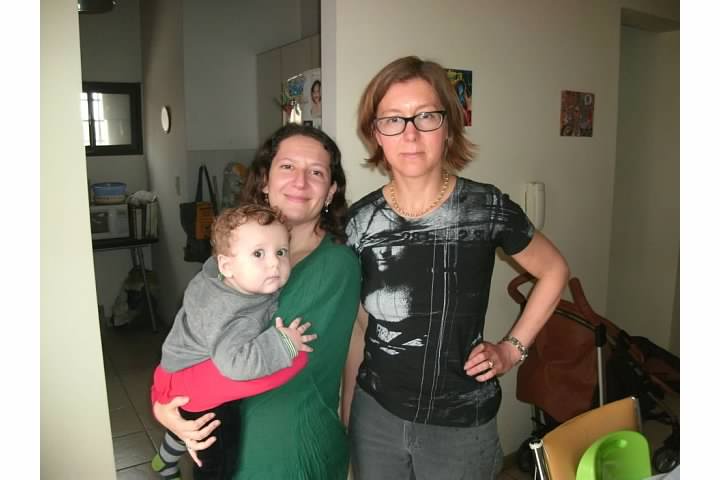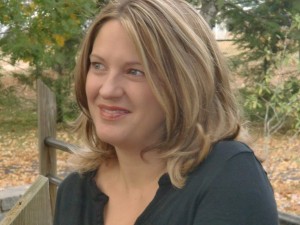Depending on how you look at it, pursuing the same craft as your very successful parent can be a formula for lifelong frustration, or a natural thing, picked up like an accent or shape of the nose. I spent several years attempting to be something other than a poet not so much because I feared failure or suffered anxiety of influence (well, maybe a little of the latter), but because it seemed too easy, too obvious a thing to do. I’d been making poems since before I could write; where was the challenge, the adventure?
When I began to take writing seriously it was nonfiction that drew me in, made me feel I could have a distinct identity. I went to a master’s program that let me pursue more than one genre, and kept up the poetry, kept hanging around poets. Time passed, I wrote poetry and prose, but one kept getting published more. Two books later, I bought a domain name that matched my dad’s: my name followed by the word “poet.”
I tell people who don’t know him that my father David Young is a poet, mostly because that’s how I think of him first and foremost. But his career encompasses teaching, scholarly work on (mostly) Shakespeare, editing a poetry magazine and book series, and translating. I grew up with a dad who cooked out of Craig Claiborne and Marcella Hazan because there were no good restaurants in town, and who translated Du Fu and Eugenio Montale because he wasn’t satisfied with the versions that were available.
“Wow, your dad knows all those languages?” people ask when I tell them about the Li Po, the Petrarch. No, I answer, just German, just the Rilke. For all the others he gets help from native speakers and multiple translations. Right now he’s working on a Dutch poet, and isn’t there another volume of Celan coming out? His friends joke about how prolific he is, now slowing down ever so slightly at the age of eighty.
So that makes it crazier, an even bigger set of boots to wear, for me to translate poetry. I never bothered, never dared. And then I went to Argentina. My husband’s first sabbatical came up, and a scholar he’d met invited him to work there. I couldn’t resist the opportunity to take time off adjuncting and join him for part of the trip.
My first-grade son and I would spend six weeks of wintery spring semester in New England, before flying to Buenos Aires where it was still late summer. I set myself the task of researching the country’s contemporary poetry, with an idea of finding someone I might like to translate. I paged through online journals and blogs, and a lovely official database with hundreds of poets and links. I Facebook friended people and poetry collectives and magazines. The abundance was both delightful and intimidating.
How’s my Spanish? It’s terrible. I took French in high school and some Italian for a trip in my twenties, just enough to mess up my future Spanish. I spent a bunch of time watching Spanish telenovelas and movies, reading poems, and listening to a language CD set when I lived in California, preparing for trips to Mexico and Costa Rica, where I let my future-and-then-husband do all the talking.
But I found my poet. I’d been chatting with this one and that, trying English versions of this or that, when it hit me that some of them lived hundreds of miles from anywhere we’d be going. Then my husband added one more city to our itinerary, when the university there invited him to talk about his research. I began researching Mendoza and came across something unusual: a report on Argentine poetry from a source outside of the country, in this case a magazine based in Madrid. An article profiled four emerging poets based in Mendoza; I started skimming it and slowed down when I reached the work of one poet.
Many have written at eloquent length about the challenges, mysteries, beauties and difficulties of translating poetry. I only have my own small perspective to add, as a writer who traces my lineage as much through work that’s been translated as work originating in English. Poetry translated not just by my dad, but Hass’s and Hirshfield’s Japanese. Bly’s and others’ Lorca, Neruda. They helped me expand my thinking and deepen my attention in graduate school, they and the wise teachers who assigned them to us. When I read Débora Benacot’s poems I had that same feeling of identification, of rightness that transcends language, or rather that works across language barriers. I felt I could imagine them in English, but more importantly I wanted to read them in English. Because I liked her poems, and my Spanish is terrible.
A few weeks later I was walking through the streets of Mendoza with directions printed out from the hotel’s computer. The streets are lined with plane trees and little streams next to the sidewalk, running through concrete or cobblestone channels, water from the Andes mountains. I found the address, just a few blocks beyond our tourist circuit of parks and restaurants. Her apartment was small, her baby cute, her husband’s English better than hers, but both way better than my Spanish. We sat down to tea and sweet bread, exchanged books, and discovered we shared a favorite reader response: our poems are not like others’; or, I don’t usually like poetry, but I like yours.
Now I just needed someone back home to help me with the language. I had some difficulty on that front, until I turned to a colleague who writes poetry in Spanish. I thought he published exclusively in his native Mexico, and had enough of undergraduates mangling his tongue not to need another beginner asking him for assistance. But an editor suggested he publish a bilingual edition of his latest collection of haiku, so…

A book of (still unpublished) haiku later, I’m ready to go back to translating Débora. We just had her first poem published online. My colleague Sergio and I recently gave a talk in a series for faculty to present their work. It’s usually about scholarly research, so I was pleasantly surprised at how many people showed up to hear a couple of poets talk about haiku. I wanted to brush up on the history of the form and remind myself why I like it so much, why I use it so often as a teaching tool. So I brought my father’s recent Basho translation and reread his introduction.
Pride is considered a sin, and for Midwesterners like my family it is particularly so. But I’m really proud of my dad, and also proud that I made my own tiny contribution to his enormous body of work. I persuaded him to change the title of his Basho translation from Moon Through the Open Window to Moon Woke Me Up Nine Times.

